Research
At the ZidaLab, we develop advanced microfluidic tools to tackle major challenges in biomedical research. Our work blends engineering, biotechnology, and computational science to create sensitive, scalable, and cost-effective assays — all with the aim of enabling precision medicine.
We specialize in:
- Single-molecule analysis of nucleic acids
- Single-cell analysis
- Blood coagulation testing
- Microfluidic platform development for biomedical applications
Our goal is to design next-generation diagnostic technologies that function with minimal instrumentation — ideal for point-of-care and resource-limited settings.
Research Topics

Nucleic acid detection plays a central role in the identification of pathogen infection, diagnosis of genetic diseases, and genetic analysis. The commonly used method of real-time PCR requires references for quantification. In contrast, the emerging technology of digital PCR offers a means for absolute quantification. However, existing digital PCR technical platforms require sophisticated instruments for compartmentalization and signal reading, limiting their widespread applications. In addition, only a handful of nucleic acid targets can be simultaneously tested. In our lab, we aim to develop low cost, portable, multiplex methods for digital nucleic acid tests using microfluidic tools and machine learning algorithms.
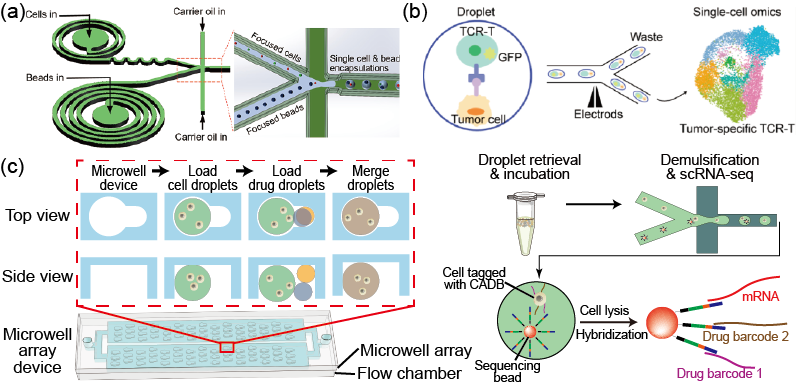
Every cell is special. Bulk analysis takes ensemble average of the biological samples, while single cell analysis offers the opportunity to tease out cell heterogeneity. A typical pipeline of single cell analysis including cell isolation, library construction, sequencing, and stats, and droplet microfluidics offers a method to isolate and process cells with ultrahigh throughput. We are currently working on improving the performance of droplet microfluidics in single cell analysis, in terms of cell encapsulation, droplet sorting, and barcoding. We work closely with our collaborators in sequencing industry.
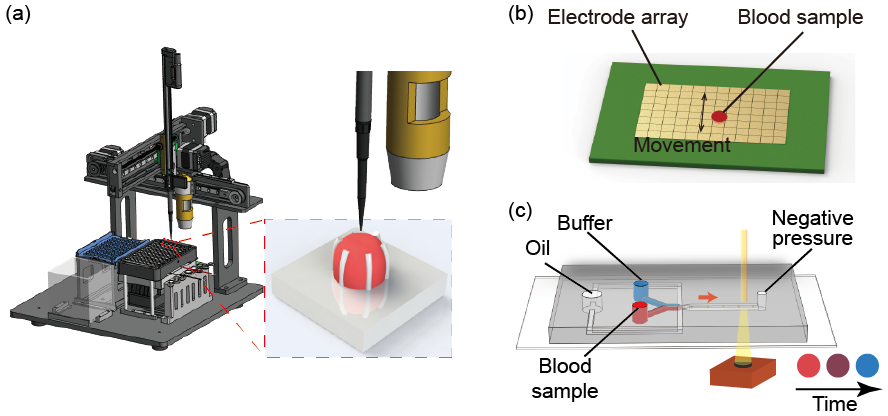
Monitoring of coagulation function has applications in many clinical settings, but routine coagulation assays are sample-consuming and slow in turnaround. In our lab, we leverage the advantage of microfluidics in developing miniaturized assays and develop novel coagulation assays that are applicable in point-of-care settings. Specifically, we develop microfluidic sensors that assess the mechanical properties, namely clot retraction force and viscosity, of the blood during clotting.
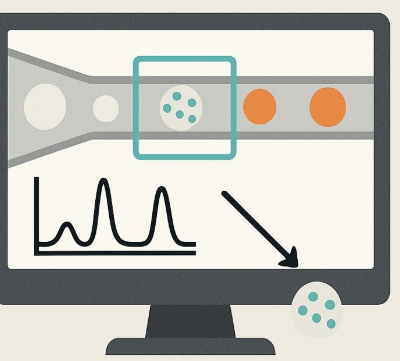
In our lab, we are also interested in developing new microfluidic tools for various biomedical applications. For example, we use real-time image analysis to identify droplets with different encapsulations and perform downstream droplet manipulations. We develop new technologies to pattern antibodies with high resolutions and multiplexity. These innovations enable precise control and analysis of microscale biological processes, supporting a wide range of diagnostic and research applications.
🖼️ Research pictures
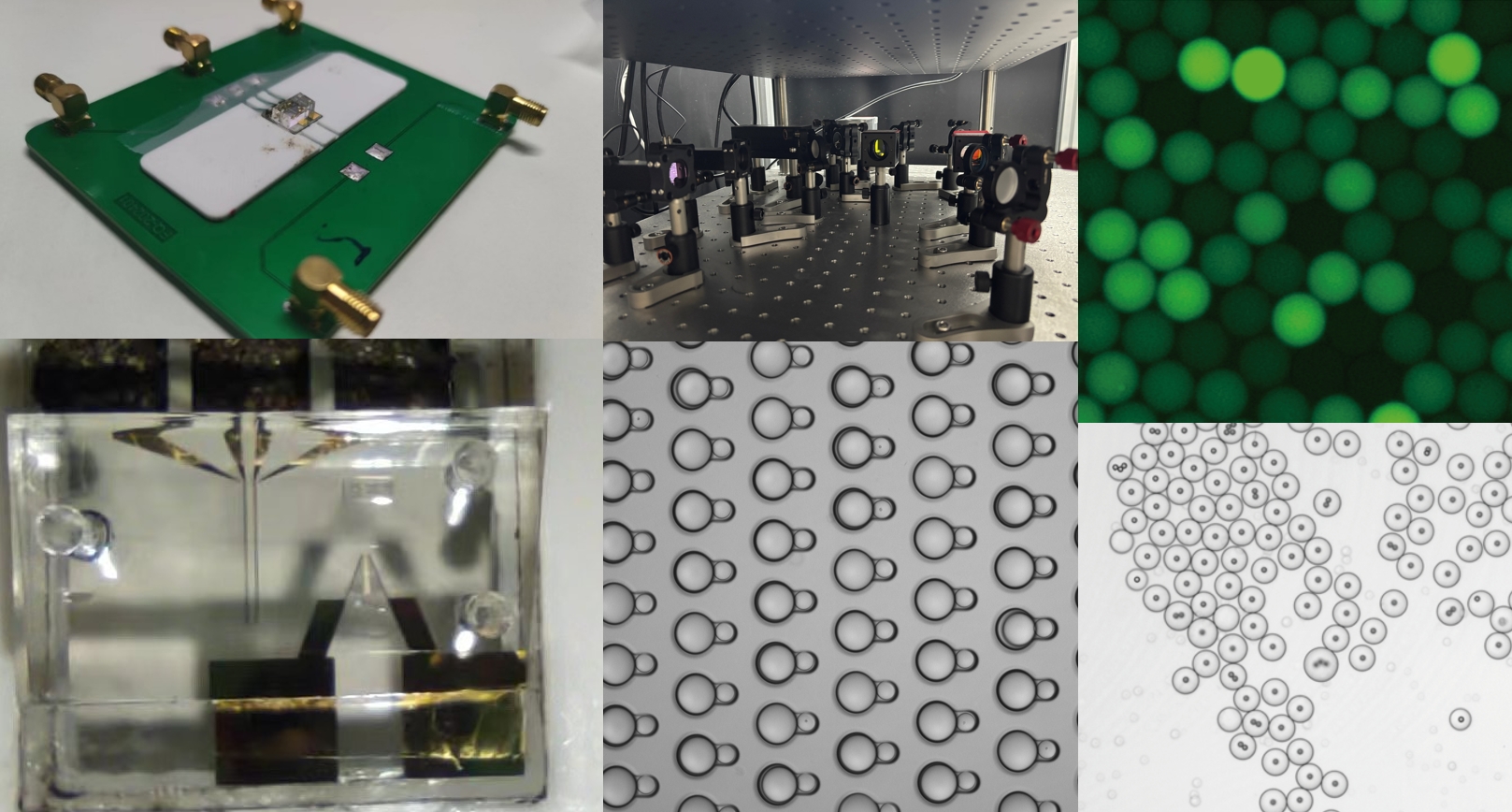
Our research is driven by hands-on experimentation and innovation in the lab. The images above showcase some of our recent work, including microfluidic device fabrication, droplet assays, and collaborative projects. These snapshots provide a glimpse into our daily research activities and the technologies we are developing.
🧪 Lab Facilities
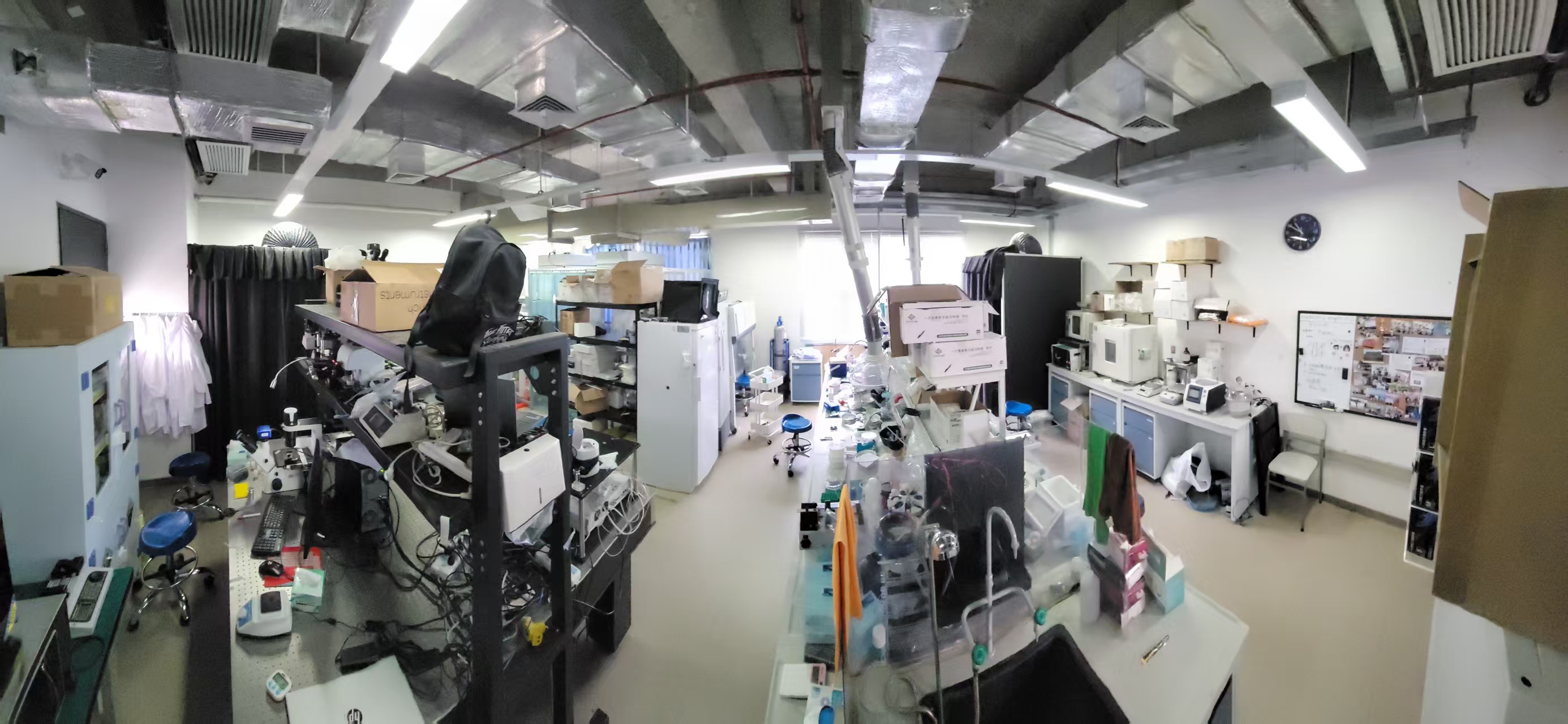
We maintain a full suite of microfabrication, imaging, and droplet-handling tools for prototyping and testing our assays.
- Microfabrication and microfluidics
- Microscopy
- Molecular and cellular biology
- Computation